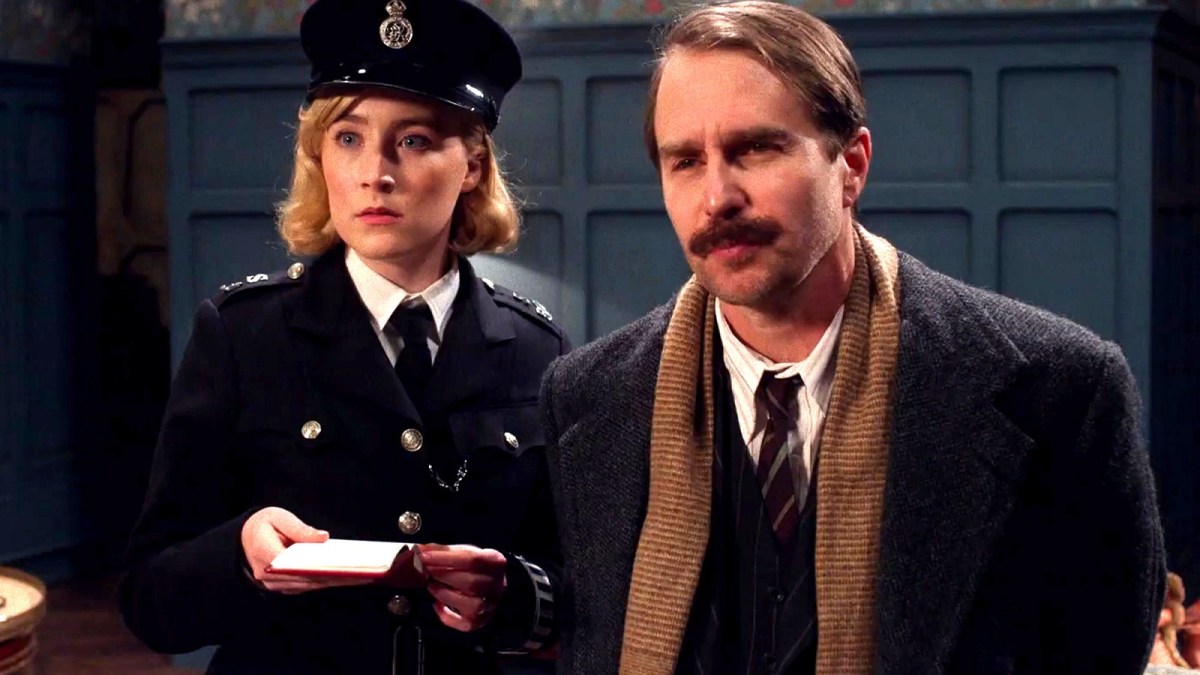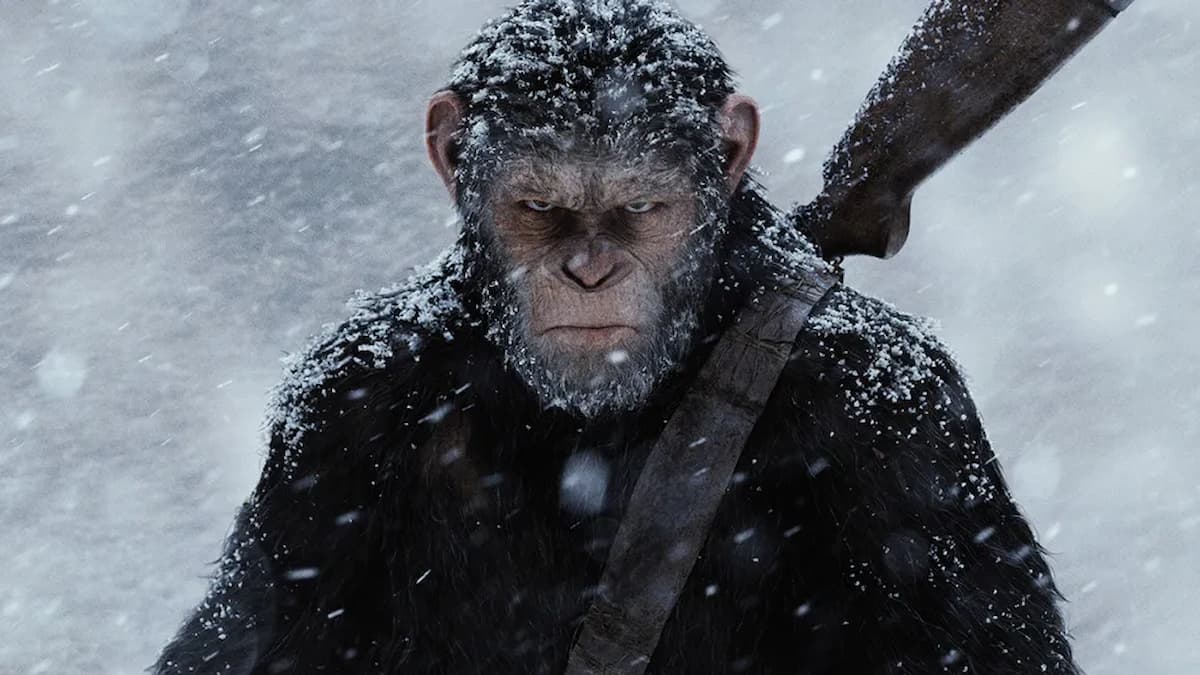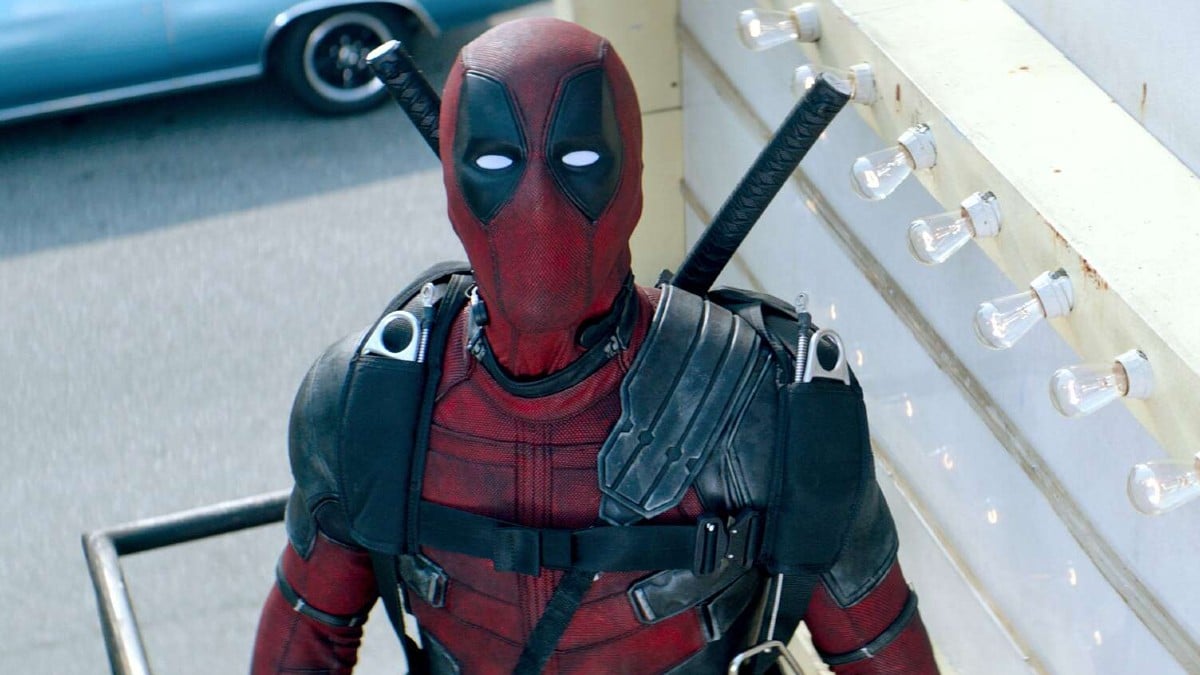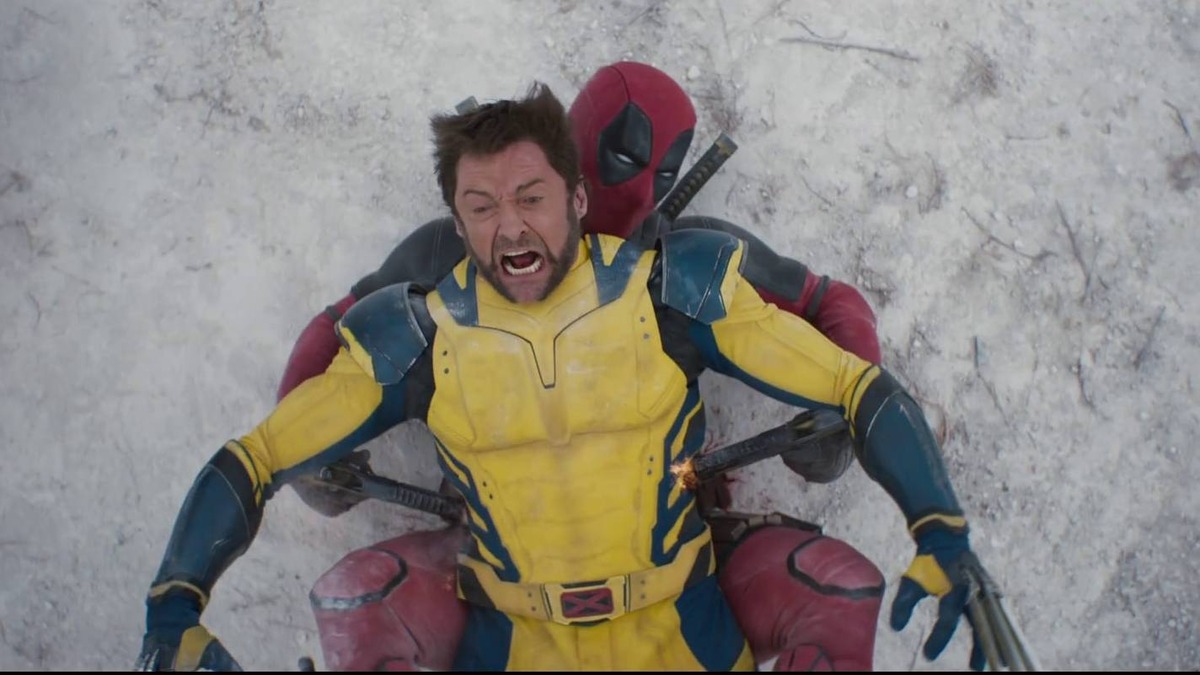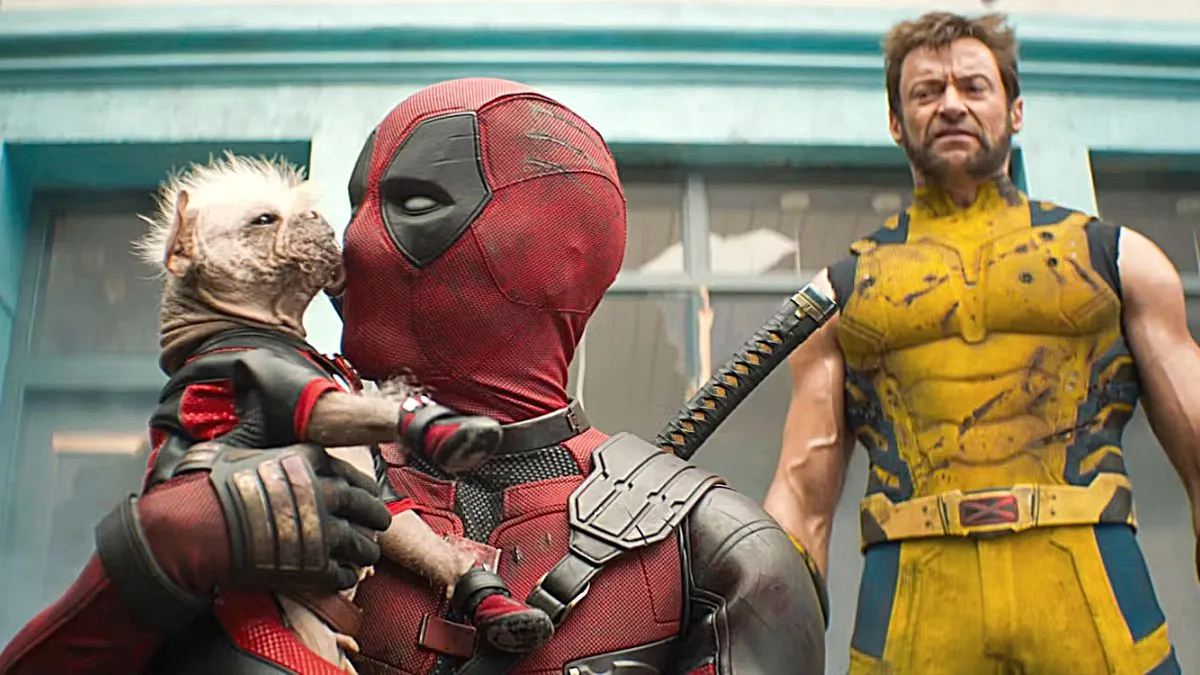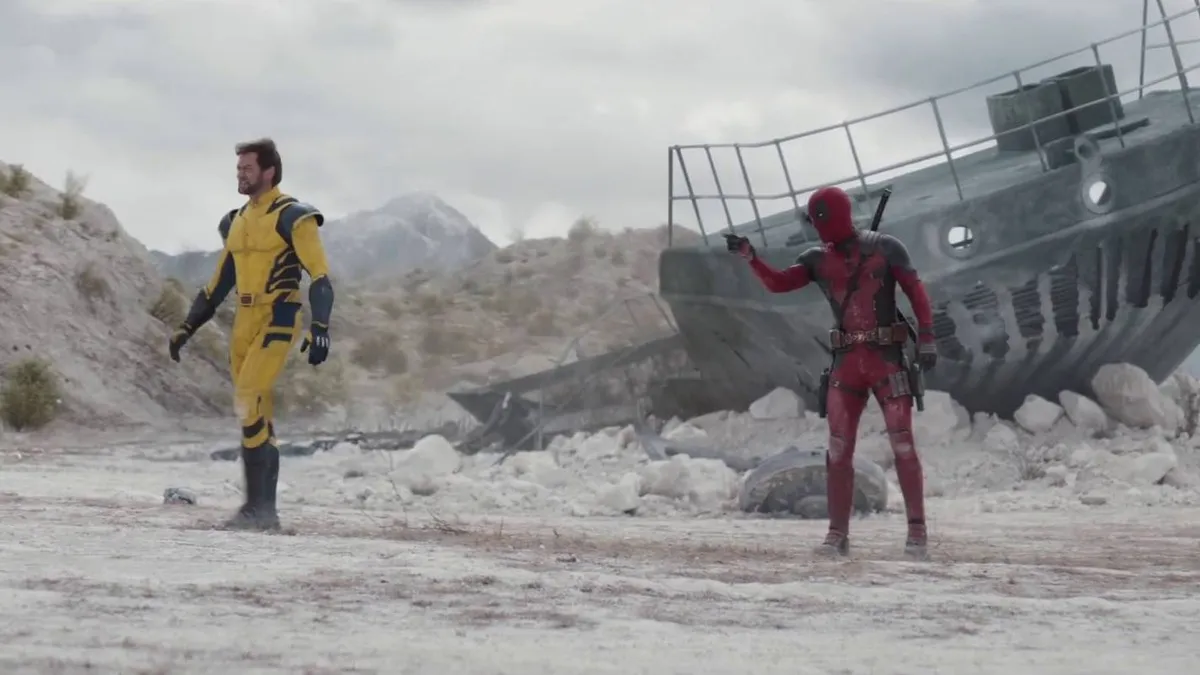Whodunnits and Agatha Christie adaptations are all the rage these days, and if you’re seeking the best of both worlds, then Tom George’s See How They Run is the ideal movie for you.
Having already topped the box office in the United Kingdom after opening last week, overcoming the re-release of Steven Spielberg’s Jaws in the process, the BAFTA-winning filmmaker’s feature-length directorial debut opens nationwide on domestic screens today, where it’s looking to ride a wave of critical adulation.
Set in 1953 London, the smart and self-aware murder mystery finds a stage version of Christie’s The Mousetrap brought to a halt following a murder. Sam Rockwell’s world-weary Inspector Stoppard is put on the case alongside Saoirse Ronan’s wide-eyed rookie Constable Stalker, forcing the unlikely duo to put their obvious differences aside to crack the case wide open.
Ahead of See How They Run‘s domestic bow, We Got This Covered had the chance to speak to George about the film, where we took a deep dive into striking the right tonal balance, avoiding falling into the traps that come from tackling such a well-worn genre, embracing the absurdity of the premise, and much more that you can check out below.
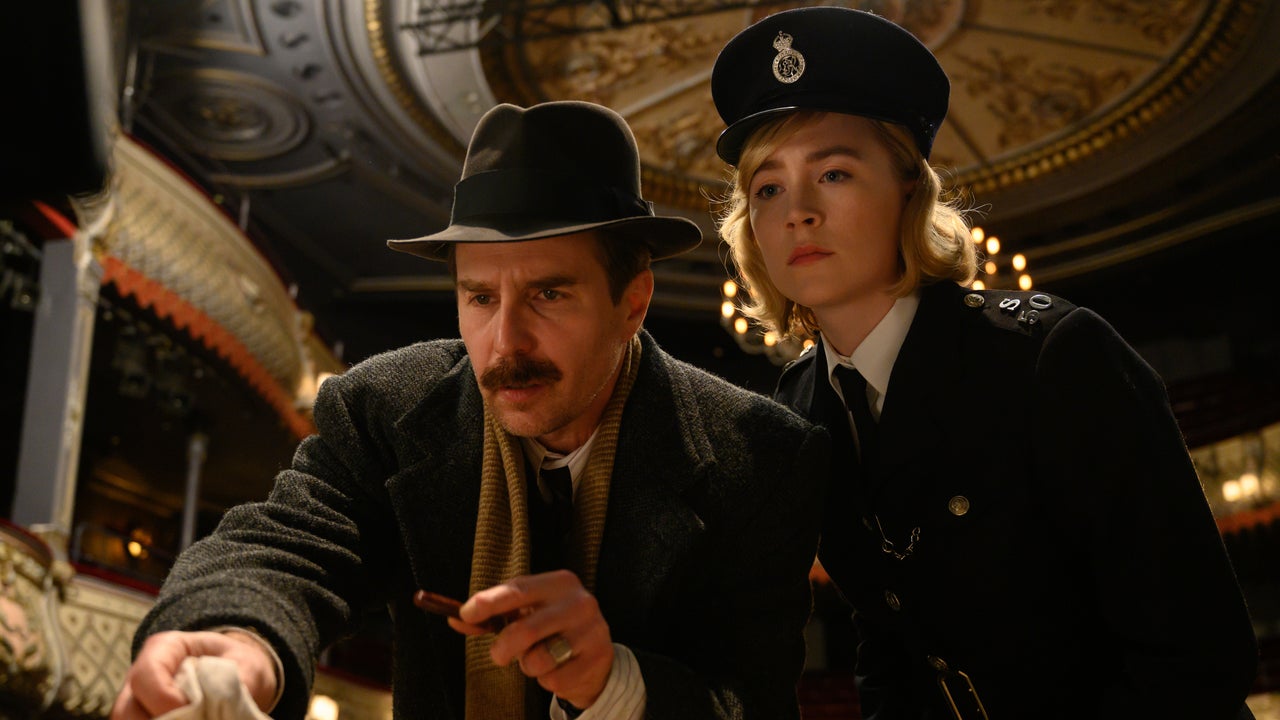
My first question is an obvious, if unexpected one. How does it feel to not just debut as the number one film in the UK, but handily defeat Steven Spielberg’s Jaws to do so?
It feels pretty great to finally take down Jaws. I know it’s very exciting. Obviously, Jaws had like a 34-year [editor’s note: it’s 47] head-start on us. So, you know, they’ve got to be happy with with their weekend, and I’m sure that Spielberg is gonna be fine. He’s really going places.
Yeah, I hear he’s got a bright future ahead.
Yeah, it was kind of silly wasn’t it. It was amazing. Coming out that same week, and they’re re-releasing Jaws, and sort of seeing it in the box office table with that was, it was quite surreal. Yeah.
Obviously, that would have never been something that crossed your mind during production, but history will remember you and See How They Run as having taken on Jaws and won, which is incredible to think about.
It’s crazy.
Whodunnits and Agatha Christie adaptations are both in the middle of a mini resurgence, and even though it’s been a while since you shot, See How They Run feels as though it’s sort of the ideal film at the perfect time to give audiences the best of both worlds.
Yeah, it certainly seems like there’s, you know, people still really want to go out and see a murder mystery. But more than that, it just, I suppose we were making it in the middle of the pandemic. And increasingly, as we went through that whole process, it felt like it was the right time to be making this kind of film, because it’s a kind of film that’s really made to be watched with people, and to get that buzz of laughing with a roomful of people, or being surprised by by a film in a packed cinema. I think we’ve all missed that kind of thing. And that ability to come together and do things in large groups, you know? So it was… it felt like, yeah, it felt like it’s the right film for right now. It’s a good film to see back in the theater.
A whodunnit about a whodunnit that features elements of the odd couple comedy, classic Hollywood, police procedural and real-life historical figures is a tricky tonal balance to pull off. Was it a challenge to find that sweet spot either during shooting or in post to tie so many different different strands together without having one overpower the rest?
Yes! Just print that, that was brilliant! No, I mean, that’s probably the best synopsis of the film I’ve heard. Because it’s a tricky one to sum up. And you know, I think you can tell that it’s a tricky tone, or it’s complex. You can tell it’s a complex tone, because it was very hard for me to describe the film to people before we’d made it. People would ask me, “Oh, what are you working on?”. I said, “It’s a whodunnit, but it’s also a comedy. And it’s, also about whodunnits”, and you can see them sort of glazing over.
So, you know, we always knew it was a tricky balance to get right. And at the heart of it, if you push the comedy too far in one direction, it will overrun and undermine the thrills, and the stakes will feel kind of disappointing in the thriller. But if you dwell too heavily on the thrills, you lose that comic thread that’s so important to the film. So yeah, throughout the whole process from from script to on set, and then in post that continued, that attempt to tune those things, and it’s amazing how… Mark [Chappell, writer] and I worked really hard on the script. Or, Mark did, and I sort of gave him annoying notes the whole time.
But, it was amazing, still, how much still needed to be found in the edit. You know, you just can’t create a sense of you how evenly paced the whodunnit is, or how the comedy is sitting alongside the thrills, until you until you get in the edit. Fortunately, that was something that I was well used to from This Country, where we would kind of completely reshape episodes in the edit, but I was surprised how much reorganizing and re-tuning we continued to do in the on this film. Yeah.
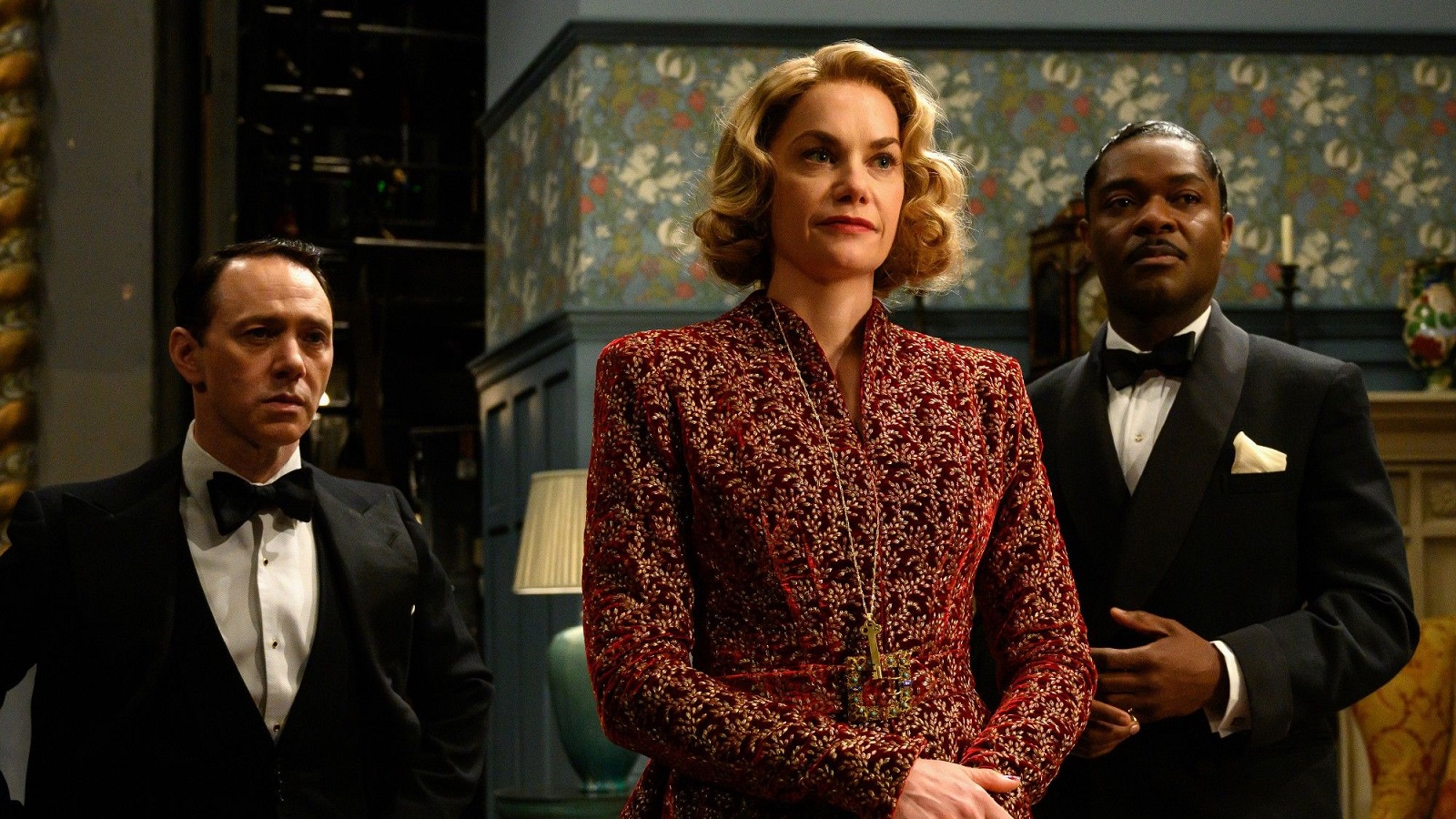
It’s meta and self-aware to a certain extent, but never in a way that winks too hard at the audience, even with many of the roles deliberately being established as archetypes, was avoiding leaning too far in that direction always at the back of your mind during the development and production process?
Definitely. I think with the right amount of… you know, you’re approaching a genre that is so familiar to audiences, and has probably more than any genre, it’s set of rules and shape to the story, that even character types that are archetypal and regularly seen. And so, it felt that the challenge becomes “how do you do something new in that space?”, where new plots are potentially out of reach, because everything’s been done in one form or another.
It was definitely the fact that this was a whodunnit, but also a film that was about whodunnits that first appealed to me. But I was aware from the start, that kind of self-aware, meta element can push an audience away, if it’s too dominant. And the way that Mark and I always spoke about it was that, it could be the extra satisfying texture on top of the thing that you’re building. But ultimately, it first needs to be built on great characters, great story, and hopefully great comedy within that.
And then, of course, performance becomes so key, because you’re totally right; many of these characters are deliberately set up as archetypes that you might usually find in this kind of whodunnit. And so then, from a performance point of view, it’s really important to me that the cast come at it from a naturalistic point of view, that they didn’t go too far into playing the period or playing the genre, or playing the fact that it’s staged in a theater, you know, all of those things are potential traps, I think, from a performance point of view. At the core of it, you have Sam and Saoirse, really rooting those characters. And hopefully, they’re great guides to take you through that world. But yeah, it relied a lot on the cast to understand that tone, and to and to get it right.
It sounds like finding that tone was somewhere between a joy and a nightmare, depending on what day of the week it was, because it’s an old-fashioned film with modern sensibilities, and the film knows that we know what to expect from it, but it’s not done in an on-the-nose or obvious way.
Yeah, great. I mean, that’s lovely to hear. I’m fully aware that for some people, as soon as there are meta or self-aware elements in play, it pushes them away. For others, it delights them, and I’m okay with that. I think that what I’ve leaned on tonally, was the I felt quite clear about how it should be played.
Essentially, that what Mark had created was this heightened, densely comic rich world. And my main priority then was to make sure that the performances, and the comedy, and the way that we executed it felt as nuance, and rooted, and natural as possible within that world. And I always felt like then, we’d find a really nice balance tonally for the film. So I tried to focus on on those things and not not get caught in the vortex of anxieties about how it could all go wrong.
The cast is absolutely stacked, and there’s a lot of comedy in the film, but it’s interesting that there’s not a lot of what you’d consider “comedians” in the ensemble. Were you always seeking dramatic actors that could do comedy when casting, as opposed to out-and-out comic talents that may have gotten too big or broad and fallen into those traps you were talking about?
Yeah, I think I’m always attracted in a cast, in the casting process, to really good actors who I feel can do the comic elements, rather than just sketch performers or overtly comic performers. Having said that, the great thing I think about the cast is that there’s a lovely mix. On the one hand, there’s some established film actors, many of whom are not that well known for comedy. But then, some of my British comedy heroes are in there as well.
So the likes of Reece Shearsmith, and Tim Key. And, obviously, my old friends Charlie Cooper, Paul Chahidi, who really do have that kind of comic DNA to their body of work as well. And the same goes for someone like Adrien Brody who’s worked across, but there’s elements, and even Saoirse, who was brilliantly funny in Ladybird, albeit a slightly different tone to this. But, again, because I believe that if the idea of the script is funny, then the main job of the cast is to bring truth and realism to it, to play it absolutely for real. The characters shouldn’t ever be aware that they’re being funny, in my opinion.
And so then, it just becomes about; for the people who are less familiar with working in comedy, making sure they don’t feel there is the need to bring some extra comic style to their performance, which I think is sometimes the pressure that actors feel when they aren’t used to doing comedy. They think, “Oh, now I’m in a comedy, I gotta do something completely different”. And nothing could be further from the truth, and what makes the likes of Reece, Charlie, Tim, and Sian Clifford such brilliant comics is that all of their comic creations never give any hint of the fact that they know they’re being funny, you know?
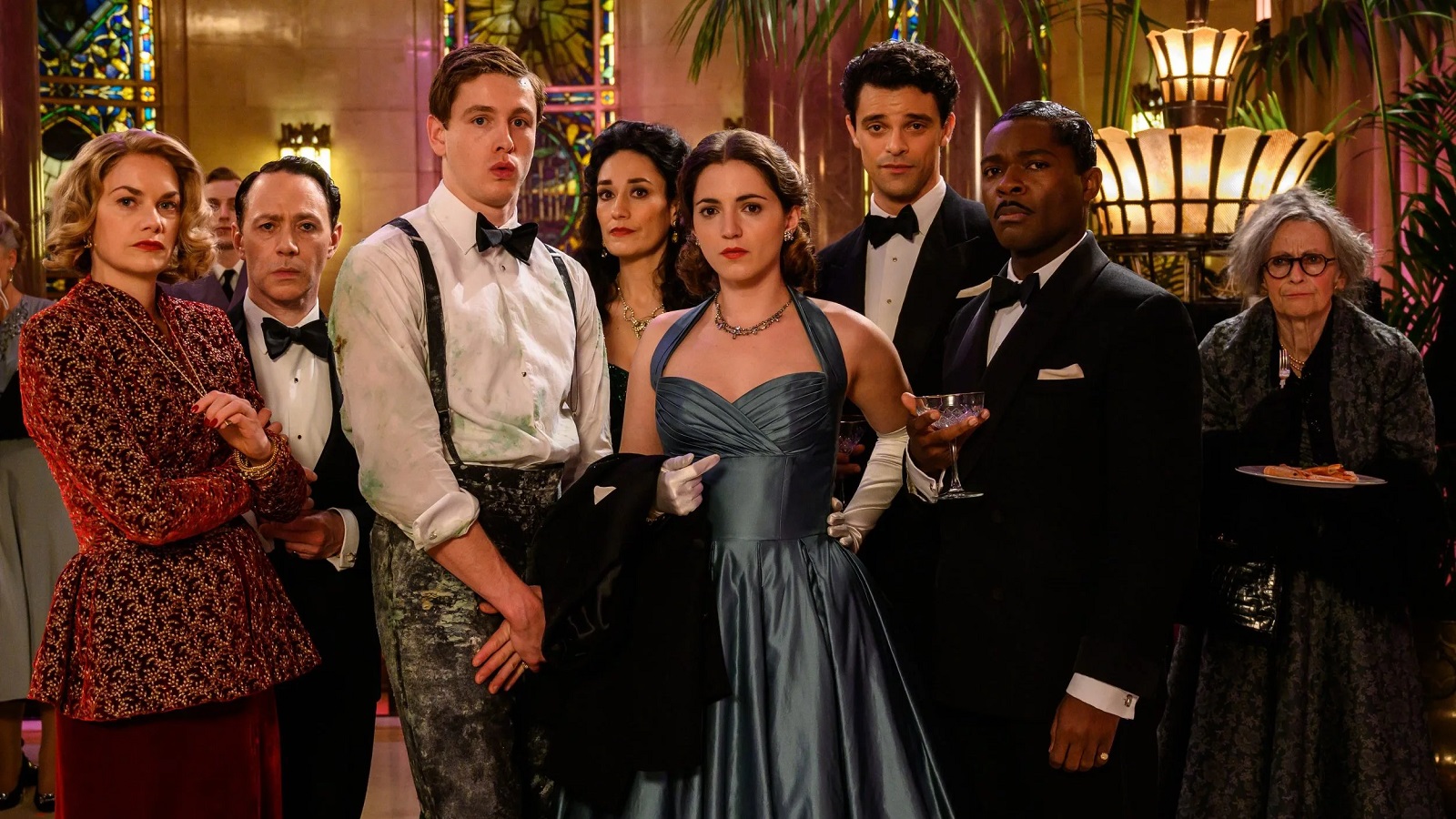
There’s a loose, improvisational feel to a lot of scenes and exchanges, how much room was there for improvisation on set? Because the story has so many parts that are always moving forward that there’s not a lot of narrative free time to get sidetracked.
Yeah. Again, I mean, it’s lovely to hear that, and that goes to the core of the way that I like to work. Which is to say that, obviously, in this instance, this was a very finely-tuned script in many ways, there are plot elements and comic elements that have to be played as written, otherwise they’ll fall apart. And Mark’s script had so much detail in it that needed to be respected to bring it to life.
But at the same time, I always like to have an element or a spirit of improv in play during the filming process. And sometimes that involves generating new jokes, or new lines, or new things that aren’t in the script. And there are a handful, a decent handful of those throughout the film, which always is really satisfying to me. But on top of that, it’s also about giving the actors the chance to be slightly loose with the script that is there on the page. So if there’s something that doesn’t fit quite in there with their accent, or the way of speaking, we can change that, and tweak that, and adjust it as we go, doing slightly loose passes or alternate takes, alternate lines.
And again, Mark was a big part of that, as well. He and I would rewrite stuff on the floor, as we were always trying to get ourselves options, give ourselves variety, but above all, to keep the performances alive. I think particularly with comedy, when you get into take 11, take 12, it can all start to feel a little well-worn. Everybody knows how everything’s going to play. And sometimes, you can see the actors relax and grow in confidence. So often, it’s just keeping it from settling too far into a groove, and just keeping it alive, and keeping it feeling exciting on the floor while you’re filming.
On the surface, This Country and See How They Run couldn’t be more different, but if you strip them back to their essence, then they’re both character-based comedies driven largely by performance, so in a way it was something you were already more than familiar with, despite See How They Run being both a period-set crime caper and your first feature?
You should literally do my press, because this is like… No, I totally agree. You know, at first glance, people look at it and go, “Whoa, didn’t expect you to do this after a mockumentary”, or whatever. But I think that’s totally right. What appealed to me about it, was that it’s a murder mystery. But at its heart, it’s a character comedy about these two incompatible detectives, and whether they can come together to form a partnership that will help them solve the case, and so that felt very familiar in terms of what I’ve come from before.
Not only that, but even the sort of meta-textual element that we’ve talked about, has a sort of a comparison in This Country, where you have the mockumentary format in play, as well as the story and the characters that you would have in any other thing. And the audience is aware of that, they’re aware that you’re making a documentary that’s not a real documentary, but you’re trying to set it up as a documentary. And that opens up interesting ways of telling a story, and sometimes getting extra comedy out of it.
But just like with See How They Run, you can’t push that too far. It can’t be just jokes about the documentary format, or the murder mystery format, that are driving the thing. I think you’ve got to build the characters, and build a world, and build a satisfying story first, and then that extra layer can add texture and fun, for those who kind of spot it and enjoy that stuff.
The dynamic between Stoppard and Stalker is fantastic, as you’d expect from having two of the best in the business playing the roles. The door is definitely left at least ajar for more adventures by the time the credits roll, is that something you’d be interested in revisiting?
I felt from the start, that whether there are going to be more stories for Stalker and Stoppard, that if we’ve done a good job, you should get to the end of the film and feel like you want more of them. You know, it’s about the story of a partnership forming and coming together. And hopefully, by the end of the film, you you feel like you want to go on more adventures with them.
Whether that’ll happen or not? It’s too early to say, but I definitely wouldn’t be against it. Just getting to watch Sam and Saoirse working together every day, and developing the relationship between those characters, just as they offscreen were sort of forming that bond. And that chemistry between them was a total joy to watch. I’d certainly be up for doing it again.
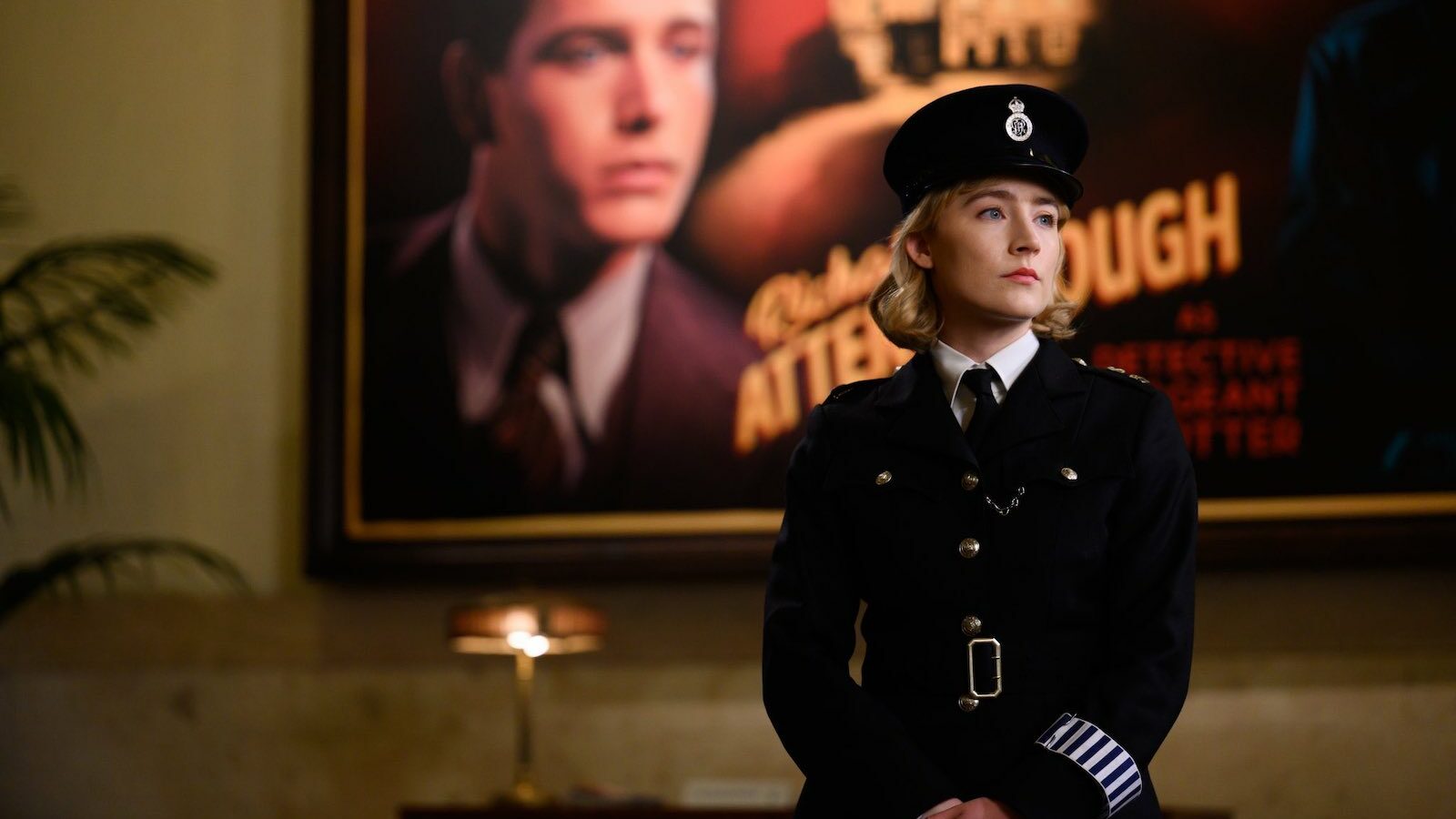
Something that might go overlooked or unnoticed by viewers is the score, but it really enhances the film. In particular, the song that plays right at the beginning of the end credits, it’s a real earworm!
That was a real chance for Daniel Pemberton to cut loose. I think that because it’d been a real challenge getting the score right, like so many things in this film, it came down to tone again; how it needs to establish context of the 1950s, draw on music, and cinema, and the music of cinema from that period. But at the same time, it needs to put a twist on it and tell you that, yeah, this is familiar, but it’s not quite as you’d expect.
And then of course, you’ve got the thriller and the comic elements in play as well. And it’s like, how best to support the comedy without overplaying the comedy. It was a big journey to really getting the score working as brilliantly as it now does. And that final sort of… I think Daniel said he wanted people marching out of the theater to it, and it really has that feel. So it’s, yeah, it’s a nice way to end, a nice note to end on,
I will die on the hill that King Arthur: Legend of the Sword [composed by Pemberton] has one of the best scores of the last decade.
Yeah, that’s a brilliant score. And he’s just like, I mean, he’s prolific because he’s probably scored about six films since we’ve been having this Zoom! But he, yeah, he’s just brilliant at bringing what can be really dense big scores to life, but always with a sort of specificity to them, always with little oddities in them, little kinks in them.
A whole chunk of the score, he embellished with by tapping on a half full glass bottle of water, you know? He’s always looking to add, kind of homemade DIY elements, or odd instrument instrumentation, or unusual rhythms into what would otherwise feel like quite traditional pieces. And how he pulls it off. I really don’t know.
Now that your feature debut is out there for the world to see and winning widespread praise, what comes next? Are there any new projects you’re working on that remain shrouded in secrecy, or are there some ideas formulating as we speak?
First a long sleep, if that’s all right! But, Mark Chappell and I are already working on a new idea, which we’re writing together, and are excited about, which is about police corruption in a small village in England. A very sort of British type of small town corruption. And so in a way, sort of fusing the last two things; fusing This Country and See How They Run together, which feels like a natural step in some ways.
If you could make any project of your choosing next without restrictions, as in somebody came up to you today and said “make whatever you want, you start tomorrow”, what would it be and why?
I would say something for Saoirse Ronan and Daisy May Cooper, whatever that may be.
A Thelma & Louise remake?
Yeah! Whatever it would be, and I don’t know what it would be. But that’s definitely something I’d love to do is to put those two together, I know that they’re huge fans of each other. And having worked with them both, I think they would just be brilliant onscreen, on-camera together.
They’ve got a lot of similarities. And they’re both really funny. And hopefully that’s something that like people are seeing for the first time, in a way, in Saoirse’s performance in See How They Run. But there’s just enough difference as well to make it a sort of exciting ride. I think so. Yeah. I’d love to do something with those two. I’m open, I’m all ears for if someone’s got good idea for that.
Steven Spielberg doesn’t have The Fabelmans coming out until November, so he’s hiding in case he gets beaten by See How They Run again.
Hopefully he can build on the success of Jaws.
Well, we’ll see.
Thanks a lot!
See How They Run is now playing in theaters.

